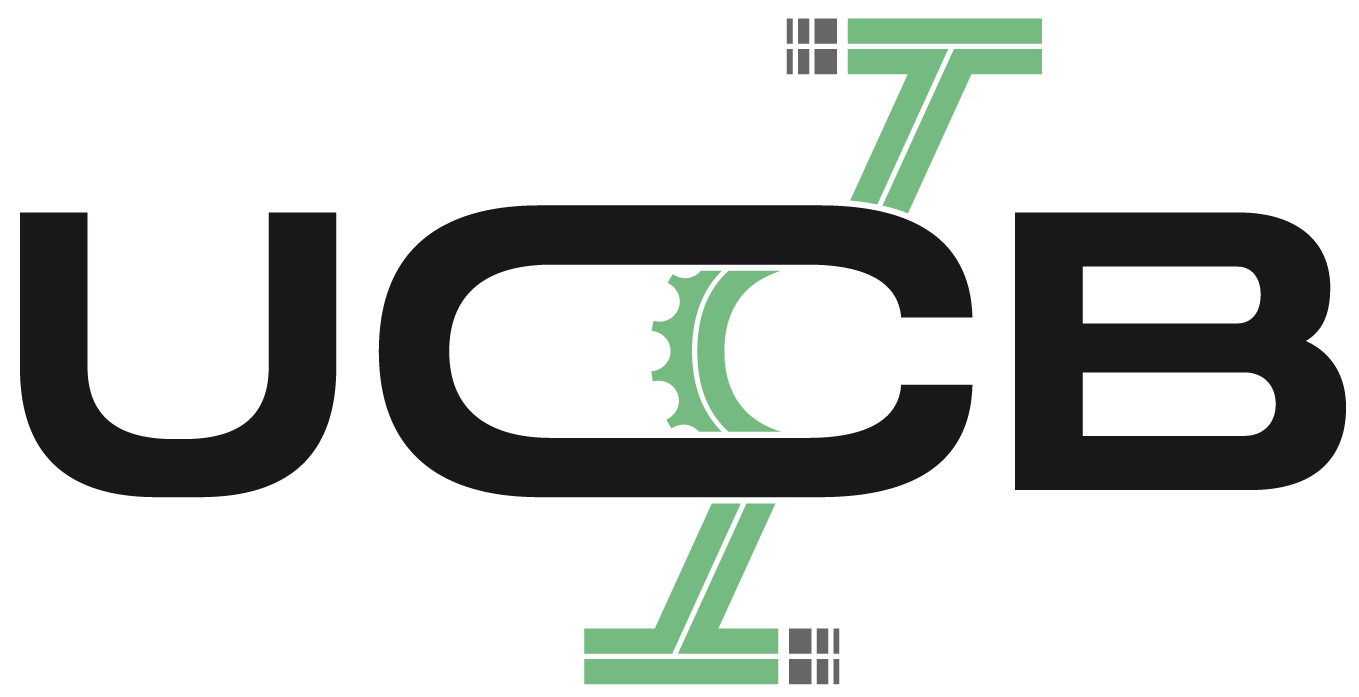Pedalando por Justiça Climática, Equidade e um Futuro Sustentável Possível
Carta Manifesto da União de Ciclistas do Brasil para a COP 30

As múltiplas crises planetárias – climática, ambiental, social e de saúde – impõem desafios sem precedentes à humanidade e demais vidas no e do planeta. Essas crises não afetam a todas as pessoas da mesma forma: suas consequências recaem desproporcionalmente sobre as populações mais vulnerabilizadas, especialmente pessoas racializadas, entre elas as que pertencem a povos indígenas, comunidades tradicionais, pessoas negras, periféricas, mulheres, dissidentes de gênero, crianças, idosos e pessoas com deficiência. A emergência climática é também uma emergência por justiça social.
Neste cenário, a União de Ciclistas do Brasil (UCB), suas organizações e pessoas associadas, signatárias deste manifesto, reafirmam seu compromisso com a transformação estrutural do modelo de mobilidade e desenvolvimento das cidades brasileiras. A mobilidade ativa, especialmente o uso da bicicleta, não é apenas uma alternativa de transporte: é uma ferramenta concreta de justiça climática, inclusão social e garantia do direito à cidade.
O transporte baseado em combustíveis fósseis, sobretudo o por meio de automóveis particulares, é um dos principais vetores da emissão de gases de efeito estufa, responsável por cerca de 44% das emissões do Brasil em 2023, segundo o Balanço Energético Nacional (BEN), além de ser responsável por milhões de mortes por doenças respiratórias e sinistros de trânsito todos os anos. O modelo rodoviarista historicamente adotado no Brasil e no mundo agrava as desigualdades e aprofunda o racismo ambiental, ao excluir e colocar em risco populações inteiras em territórios vulnerabilizados, negando-lhes acesso seguro, saudável e digno à mobilidade e seus direitos civis e sociais.
Diante da realização da COP30 no Brasil, em 2025, conclamamos os governos e a sociedade civil nacional e internacional a reconhecerem a urgência da mobilidade ativa e sustentável como eixo central da transição justa e ecológica. Não há futuro possível sem cidades mais inclusivas, democráticas, humanas, caminháveis e pedaláveis. Não há transição justa sem investimento público em infraestrutura segura para quem anda a pé e de bicicleta, especialmente nas periferias urbanas e em territórios historicamente negligenciados pelo poder público.
A redução das distâncias e a garantia do acesso a direitos sociais básicos — como saúde, educação, trabalho, lazer e cultura — devem ser compreendidas como pilares fundamentais de cidades justas e resilientes. Esta urgência é ainda mais evidente em Belém, sede da COP30, símbolo das desigualdades territoriais do Brasil e das vulnerabilidades enfrentadas pelos países do Sul Global, que sofrem de forma desproporcional os impactos das mudanças climáticas.
É preciso investir em mudanças estruturais, começando por Belém e se estendendo a todas as cidades brasileiras, especialmente nas periferias e nas franjas urbanas, onde o acesso à mobilidade segura, à infraestrutura urbana básica e aos direitos fundamentais ainda é negligenciado. O mesmo se repete em diversos países do Sul Global, que, apesar de serem os menos responsáveis pelas emissões históricas, enfrentam as piores consequências da crise climática.
Por isso conclamamos aos poderes constituídos a colocar no centro das políticas climáticas:
- O combate ao racismo ambiental e ao modelo urbano que marginaliza e expulsa os mais pobres;
- A redução das desigualdades territoriais no acesso à mobilidade segura e sustentável;
- O reconhecimento do papel das bicicletas na construção de cidades mais democráticas e resilientes;
- O protagonismo da sociedade civil e dos movimentos sociais, especialmente os que representam as periferias urbanas, na definição das políticas de mobilidade;
- A urgência de investimentos massivos em infraestrutura cicloviária e programas educativos continuados para a mobilidade segura que valorizem modos ativos de deslocamento.
Inspirados pela Agenda 2030 da ONU e por seu princípio central de “Não deixar ninguém para trás”, defendemos um novo pacto pelo envolvimento urbano sustentável, justo e inclusivo. Um pacto que inclua as bicicletas como parte da solução, e não como nota de rodapé nas discussões sobre o futuro do planeta.
O Brasil tem a responsabilidade e a oportunidade histórica de liderar o debate global sobre cidades sustentáveis. As lições deixadas pela Rio 92 e pela Rio+20 nos convocam novamente à ação. A COP30 deve ser um marco na reconstrução de um país que não aceita mais a morte nas ruas, a exclusão no transporte, o colapso climático.
Pedalar é um ato político, ecológico e de resistência.
Pedalar é cuidar da vida.
Pedalar é apontar o caminho para futuros possíveis.
União de Ciclistas do Brasil (UCB), suas organizações e pessoas associadas – novembro de 2025.
=============================================================
Cycling for Climate Justice, Equity, and a Possible Sustainable Future
Manifesto from the Brazilian Cyclists’ Union for COP 30
The multiple planetary crises – climatic, environmental, social, and health-related – pose unprecedented challenges to humanity and all life on and from the planet. These crises do not affect everyone in the same way: their consequences fall disproportionately on the most vulnerable populations, especially racialized people, including Indigenous peoples, traditional communities, black people, residents of peripheral areas, women, gender dissidents, children, older adults, and persons with disabilities. The climate emergency is also an emergency for social justice.
In this context, the Brazilian Cyclists’ Union (UCB), together with its member organizations and individuals who sign this manifesto, reaffirms its commitment to the structural transformation of the mobility and urban development model in Brazilian cities. Active mobility—especially cycling—is not just an alternative mode of transport: it is a concrete tool for climate justice, social inclusion, and the guarantee of the right to the city.
Transportation based on fossil fuels, particularly private car use, is one of the main drivers of greenhouse gas emissions – responsible for about 44% of Brazil’s emissions in 2023, according to the National Energy Balance (BEN)—and is also responsible for millions of deaths every year due to respiratory diseases and road crashes. The car-centric model historically adopted in Brazil and across the world exacerbates inequalities and deepens environmental racism by excluding and endangering entire populations in vulnerable territories, denying them safe, healthy, and dignified access to mobility and their civil and social rights.
With COP30 taking place in Brazil in 2025, we call on national and international governments and civil society to recognize the urgency of active and sustainable mobility as a central pillar of a just and ecological transition. There is no possible future without more inclusive, democratic, humane, walkable, and bikeable cities. There is no just transition without public investment in safe infrastructure for people walking and cycling—especially in urban peripheries and historically neglected territories.
Reducing distances and ensuring access to basic social rights—such as health, education, work, leisure, and culture—must be understood as fundamental pillars of just and resilient cities. This urgency is even more evident in Belém, the host city of COP30, a symbol of Brazil’s territorial inequalities and of the vulnerabilities faced by countries of the Global South, which suffer disproportionately from the impacts of climate change.
It is essential to invest in structural change—starting with Belém and extending to all Brazilian cities, especially in the peripheries and urban fringes, where access to safe mobility, basic urban infrastructure, and fundamental rights continue to be neglected. The same situation occurs in many countries of the Global South, which, despite being the least responsible for historical emissions, face the worst consequences of the climate crisis.
Therefore, we call on public authorities to place at the center of climate policies:
- The fight against environmental racism and urban models that marginalize and displace the poor;
- The reduction of territorial inequalities in access to safe and sustainable mobility;
- The recognition of the bicycle’s role in building more democratic and resilient cities;
- The leadership of civil society and social movements—especially those representing urban peripheries—in shaping mobility policies;
- The urgency of massive investments in cycling infrastructure and ongoing educational programs for safe mobility that promote active modes of transport.
Inspired by the UN 2030 Agenda and its central principle of “Leaving no one behind,” we advocate for a new pact for sustainable, just, and inclusive urban development. A pact that includes bicycles as part of the solution, not as a footnote in discussions about the planet’s future.
Brazil has both the responsibility and the historic opportunity to lead the global debate on sustainable cities. The lessons of Rio 92 and Rio+20 once again call us to action. COP30 must mark the rebuilding of a country that no longer accepts death on its streets, exclusion in transportation, or climate collapse.
Cycling is a political, ecological, and resistance act.
Cycling is caring for life.
Cycling points the way toward possible futures.
Brazilian Cyclists’ Union (UCB), its member organizations, and associates – November 2025.

 Ao navegar neste site, você concorda com os
Ao navegar neste site, você concorda com os